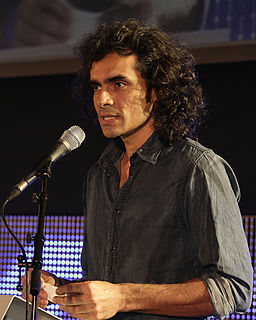A Quote by Alfred North Whitehead
Familiar things happen, and mankind does not bother about them. It requires a very unusual mind to undertake the analysis of the obvious.
Related Quotes
Quite generally, the familiar, just because it is familiar, is not cognitively understood. The commonest way in which we deceive either ourselves or others about understanding is by assuming something as familiar, and accepting it on that account; with all its pros and cons, such knowing never gets anywhere, and it knows not why.... The analysis of an idea, as it used to be carried out, was, in fact, nothing else than ridding it of the form in which it had become familiar.
If you look at the history of demagoguery and fascism, it always happens when there are two things. It requires a gentle populace to allow it to happen, whether through laziness, ignorance or ineptitude, but it also requires a very angry, dissatisfied section of the populace who want egregiously simple answers to very complicated problems.
Everybody agrees that the brain is a remarkable machine. It's capable of generating an enormous number of phenomena, some of them very obvious and some of them less obvious. But I think that in the end there are going to be some very basic explanations for many things: emotions, awareness, consciousness, attention, perception, recognition.
The fact that there's a more open discussion about everything from feminism to racism?...?I look at my two boys?...?this is their future I'm talking about. When I'll be long gone, it'll be them and their kids. I know that sometimes the darkest times are followed by the lightest. Sometimes bad things have to happen for good things to happen. At the very worst, we're having very open discussions, discussions about things we didn't even know f-king existed. I talk to my friends about it and they are absolutely shocked. They didn't even know.
I like good ideas. I don't want just do something for it's own sake to bother people, but if I can bother them with a logical argument about something they have agreed to in society simplistically - like children are sacred, the cult of the child, this cult of professional parenthood, and of course religion, and respect for policemen and the law, and all of these untouchable areas. I like attacking those beliefs, but in with good sound thinking, and an unusual approach.
If you can observe your own experience with a minimum of interference, and if you don't try to control what you experience, if you simply allow things to happen and you observe them, then you will be able to discover things about yourself that you did not know before. You can discover little pieces of the inner structures of your mind, the very things that make you who you are.
I think you can talk about anything if the context is correctly arranged. If you set up the context and you bring the audience along carefully enough with you, you can get them to cross the line with you. What I try to do is talk about things that bother me, and I hope that in doing so I bother other people.





































